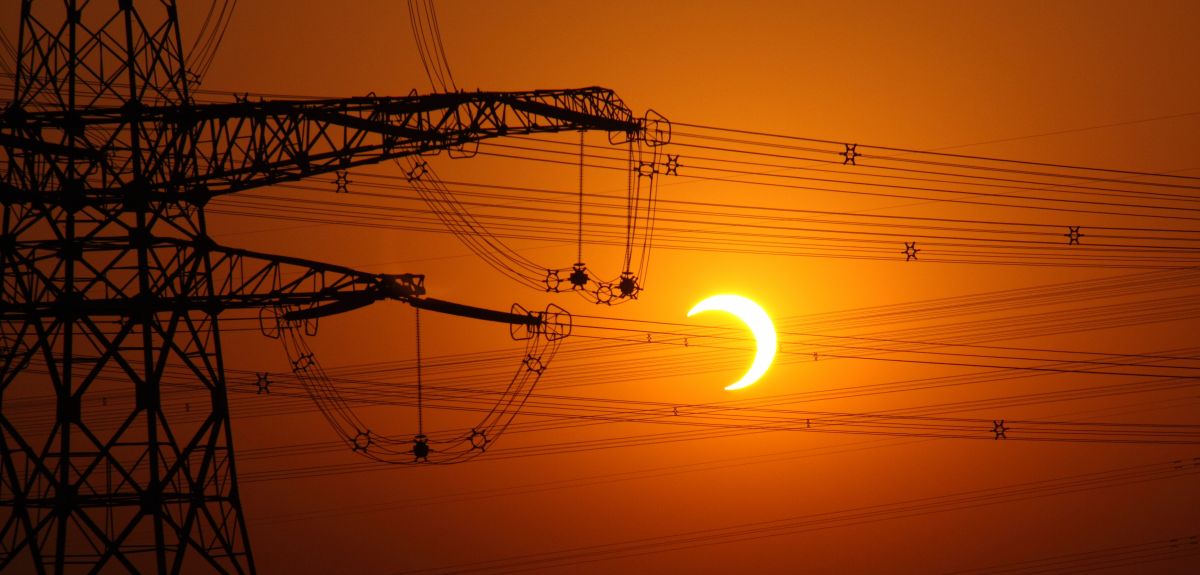
Photo: Shutterstock
How will eclipse hit Europe's electricity grids?
Oxford University scientists are looking to predict how the partial solar eclipse of 20 March 2015 will affect electricity grids.
The eclipse will cast a long shadow across Europe, potentially causing hundreds of thousands of solar panels to tune down (or turn off) their production as they experience partial darkness, and then suddenly turn themselves on again as sunlight fully returns. Solar panels now feed large amounts of electricity into the power grids of countries including Germany, Italy, and France: in summertime up to 40% of Germany’s energy comes from its solar farms.
Whilst they reduce greenhouse gas emissions, renewable energy sources, such as solar and wind, introduce instability into power grids because of the oscillation in power production levels due to weather variations.
As the last European solar eclipse was in 1999, before the proliferation of solar energy sources feeding into grids, no one knows what impact the eclipse and the subsequent behaviour of populations of solar panels will have on power grids which were engineered for the pre-renewable era. Events such as a solar eclipse, or a local power failure, can lead to the synchronisation of large numbers of panels potentially resulting in a cascade of electricity blackouts. Predicting the behaviour of populations of solar panels could enable the mitigation of grid instability and prevent blackouts.
'While the impact over the UK is not likely to be as substantial as for other European countries, this eclipse is a rare opportunity to challenge in a worst-case scenario the mathematical models we are developing to predict the behaviour of large populations of solar panels,' said Professor Alessandro Abate of Oxford University's Department of Computer Science, who is leading the work. 'With very many solar panels of different types, brands, and set-ups sited in different locations, current models have to cope with a lot of variables: we believe we can create new, simpler yet precise models that reliably predict the overall behaviour and its likely impact on the stability of the power grid.'
Professor Abate and his team hope they can move on to helping to design strategies to ensure that power grids are more predictable, robust, and reliable. 'The models we are creating are not only relevant to solar power, they should also be useful for predicting the behaviour of other renewable energy sources with great economical interest, such as wind power,' said Professor Abate. 'As we move towards ever more interconnected grids in which renewables are providing more and more power, there is a great need to understand how these variable energy sources can engage with electricity grids that are improved to accommodate them.'
 New Year Honours 2026
New Year Honours 2026
 New study estimates NHS England spends 3% of its primary and secondary care budget on the health impacts of temperature
New study estimates NHS England spends 3% of its primary and secondary care budget on the health impacts of temperature
 International collaboration launches largest-ever therapeutics trial for patients hospitalised with dengue
International collaboration launches largest-ever therapeutics trial for patients hospitalised with dengue
 Oxford-built multi-agent assistant for cancer care to be piloted in collaboration with Microsoft
Oxford-built multi-agent assistant for cancer care to be piloted in collaboration with Microsoft